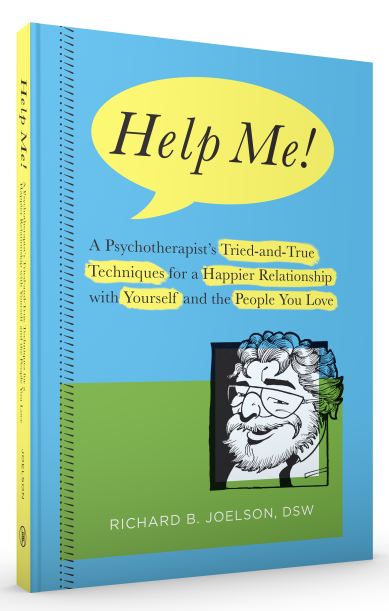William frequently spoke of his plans to take off 25 pounds and begin an exercise program following a recent failed stress test and resulting angioplasty; a rather startling development for a heretofore healthy 49 year old book publisher. Both Rebecca and William, it turned out, were highly conflicted about acting on some of their good intentions and so managed to avoid taking the actions necessary to accomplish their goals.
There are many different ways that people manage their anxiety and handle the conflicts that occur in everyday life. Rebecca and William were both demonstrating something known as "thinking instead of doing." This is a defense against anxiety that involves substituting thought for behavior, so that the anxiety associated with actually acting is kept under control or eliminated altogether. The person who is thinking instead of doing often is soothed and sufficiently reassured so that the actions may become less important than the comfort of believing that action will, at some point, occur.
Rebecca, for example, was completely convinced that her good intentions and various plans to address her social needs would lead her to take the necessary next steps. In fact, she was so confident and convinced in the eventuality of the required behavior that she sometimes forgot whether or not she had actually acted or, just intended to! This suggested the possibility that her intentions may have become a substitute for action (i.e. thinking instead of doing) and/or that the thinking itself was being experienced as though it had been a behavior. Further exploration revealed that Rebecca harbored terrible fears about whether or not she would ever meet "Mr. Right." In her case, "thinking instead of doing" helped her to steer clear of the frustrations, worries, and disappointments she had previously experienced and, therefore, associated with future dating. Thinking about dating (while managing not to) involved the illusion that she was doing something about her social and romantic needs, rather than nothing, which was unacceptable.
William's situation was quite similar. He took great comfort in his good intentions and active thoughts about losing weight and getting in better physical shape, which, of course, was considerably easier and more enjoyable than doing either or both. He, like Rebecca, seemed comfortable not to act, rather than to act in behalf of these important goals. The line between thinking and doing became blurry for William but he was able to recognize how his confidence in the eventuality of his actions almost made the actions themselves seem unnecessary!
If you take a close look at your own intentions, plans, or resolutions about the ways in which you want to make changes in your own life, chances are you will discover at least one example in which you may have lulled yourself into believing that your "plan of action" may be plan-heavy, but action-light…or, without any action at all!
